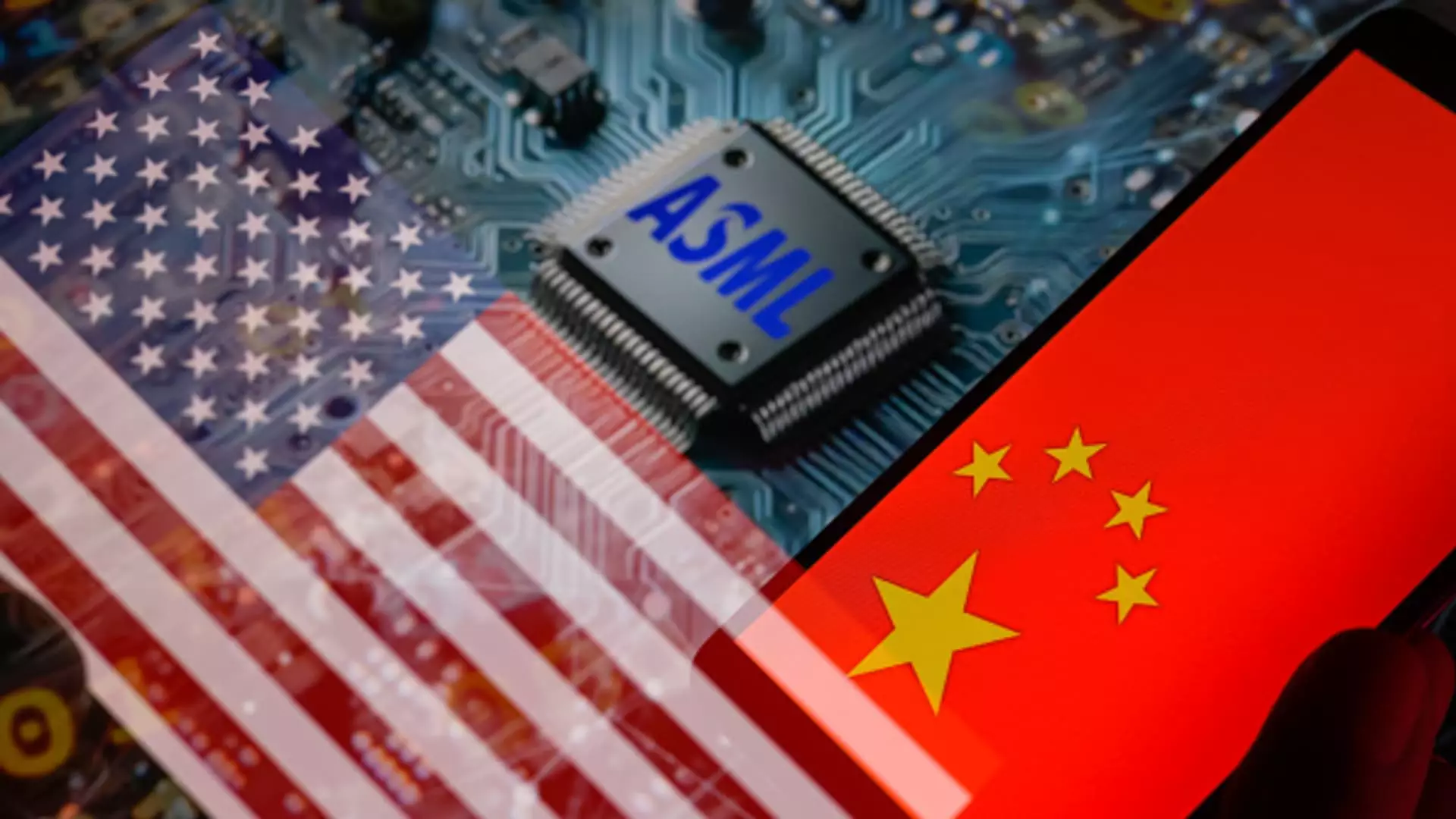The landscape of the global semiconductor industry has always been delicate, especially amidst ongoing geopolitical tensions. Recently, key semiconductor equipment manufacturers experienced a noticeable surge in their stock prices, primarily fueled by reports concerning potential U.S. sanctions on China’s semiconductor sector. Notable players such as ASML and Tokyo Electron saw respective increases of 3.6% and more than 6% shortly after trading commenced in Europe and Japan. This bullish sentiment in the markets illustrates a complex relationship between regulatory policies and investor confidence in semiconductor stocks, reflecting a hopeful outlook amidst a turbulent political environment.
Bloomberg’s recent report revealed that the U.S. is contemplating new measures regarding restrictions on the export of semiconductor equipment and artificial intelligence (AI) memory chips to China. However, these measures may be less severe than previously anticipated, which has eased some of the investor concerns that emerged from earlier, stricter proposals. The U.S. Commerce Department, responsible for these regulations, has remained tight-lipped, choosing not to comment on the specifics of the Bloomberg report. The nuances of the contemplated sanctions are crucial since even small shifts in agreement could influence broader market dynamics, particularly for companies heavily reliant on the Chinese market.
One significant highlight from the report was the potential exclusion of ChangXin Memory Technologies from the U.S. export blacklist. This development could fundamentally alter the competitive landscape among memory manufacturers, with ASML analysts indicating that its anticipated revenue decline from China could be mitigated should ChangXin remain unaffected. ASML’s prior forecast predicted a rough 30% drop in revenue stemming from the Chinese market due to prior restrictions, but this new outlook presents a more optimistic scenario, suggesting that sales might not plummet as drastically as once believed.
The Critical Role of ASML in the Chip Supply Chain
ASML’s position in the semiconductor supply chain is pivotal, given its manufacturing capabilities for cutting-edge lithography machines essential for chip production. These sophisticated machines have faced strict export controls, particularly making their way into China’s tech ecosystem, like SMIC. The overarching tension between the U.S. and China affects ASML and similar firms, as the effectiveness of sales strategies hinges on navigating governmental regulations. Tightened restrictions could severely hamper demand for ASML’s equipment; however, any easing of regulations may facilitate further opportunities for foreign semiconductor manufacturers’ access to Chinese fabs.
As the semiconductor landscape continues to evolve, the interaction between market sentiment, regulatory changes, and global players will remain critical. The latest developments suggest a potential softening in U.S.-China trade relations regarding semiconductor technology, providing a glimmer of hope for firms like ASML navigating this complex environment. Investors will be keenly monitoring the next steps from Washington, as any changes could have profound impacts not only on stock valuations but also on the strategic direction of the semiconductor industry worldwide.


Leave a Reply